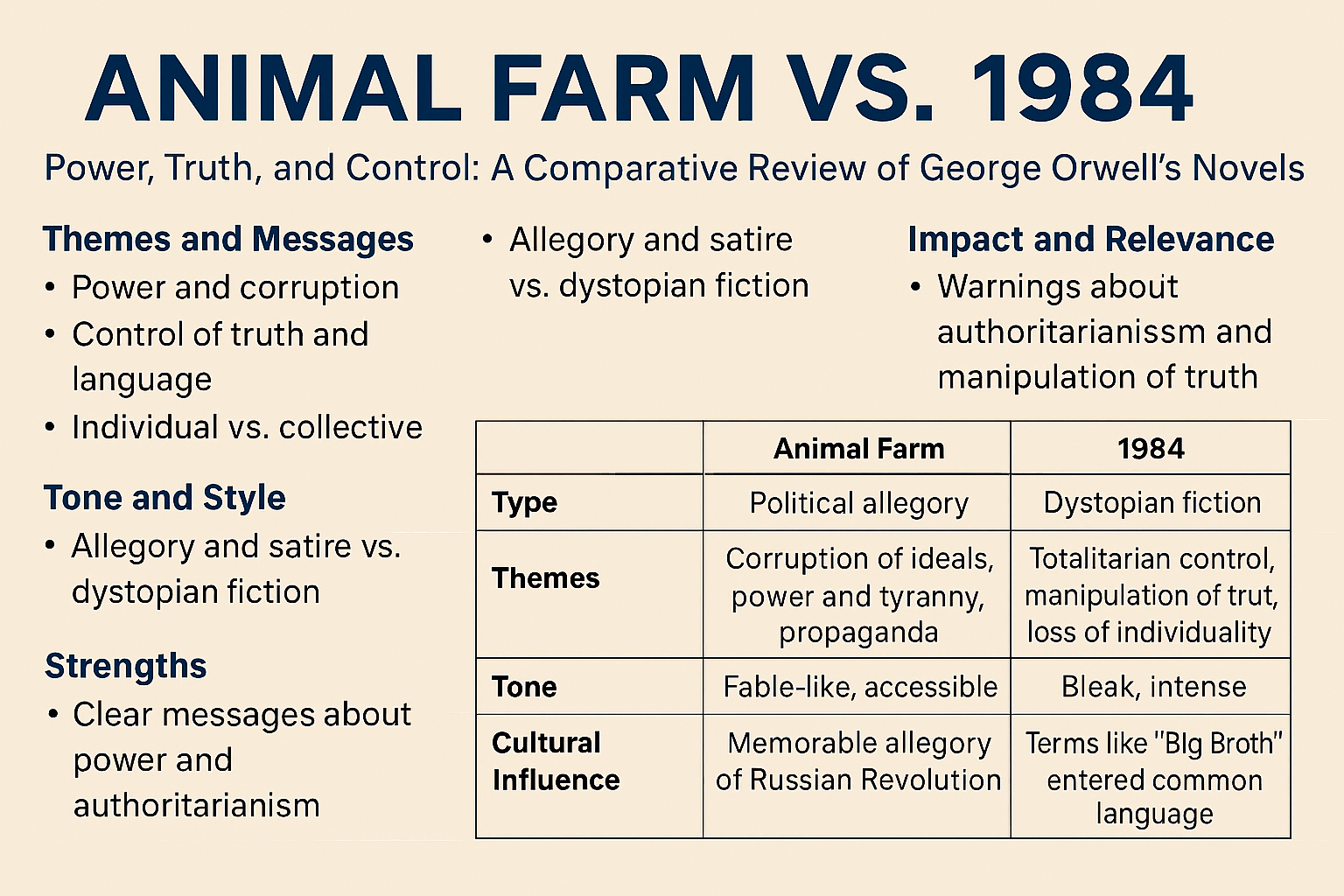Parallels and Contrasts
Power and Corruption
Both works underscore the corrupting influence of power. In Animal Farm, the pigs’ gradual transformation into human-like oppressors illustrates how revolutions can devolve into tyranny. In 1984, the Party’s pursuit of power for its own sake—“Power is not a means; it is an end”—depicts a system where control becomes the ultimate goal.
Control of Truth and Language
Language is central to Orwell’s critique in both novels. 1984 introduces Newspeak, a language engineered to limit thought and suppress dissent, while Animal Farm shows Squealer’s propaganda reshaping reality to maintain the pigs’ dominance. Both narratives warn that whoever controls language controls truth—and, by extension, society.
Individual vs. Collective
Animal Farm critiques the betrayal of collective ideals, embodied in Boxer’s unquestioning loyalty and tragic fate. Conversely, 1984 focuses on the annihilation of individuality, as Winston Smith’s quest for personal freedom ends in psychological submission to Big Brother.
Tone and Style
Animal Farm employs a simple, fable-like style, making its political message accessible and universal. Its brevity and allegorical clarity allow readers to draw parallels to historical events, notably the Russian Revolution and Stalinism, thereby making the themes of power and Corruption feel relevant and engaging to the audience.
1984, by contrast, is darker and more complex. Orwell’s stark prose and oppressive atmosphere create a world that feels disturbingly real, leaving readers with a profound sense of hopelessness.
Cultural Impact and Relevance
Both works remain strikingly relevant.
- Animal Farm warns against the Corruption of revolutionary ideals and the rise of new elites.
- 1984 serves as a cautionary tale about mass surveillance, propaganda, and the erosion of truth—issues that resonate strongly in the digital age.
Terms like “Big Brother,” “doublethink,” and “thoughtcrime” have become part of everyday language. At the same time, Animal Farm’s maxim—“All animals are equal, but some animals are more equal than others”—remains a powerful indictment of hypocrisy in politics.
Strengths and Weaknesses
- Animal Farm: Strength lies in its clarity and accessibility; weakness lies in its simplicity, which some may find limiting.
- 1984: Strength lies in its psychological depth and world-building; weakness lies in its bleak tone and dense theoretical passages.
Conclusion
Together, Animal Farm and 1984 form a complementary pair—one illustrating how revolutions fail, the other envisioning the ultimate triumph of aauthoritarian m Orwell’s message is clear: freedom is fragile, and vigilance is essential. These works are not just literature; they are warnings that remain as urgent today as when they were written.
